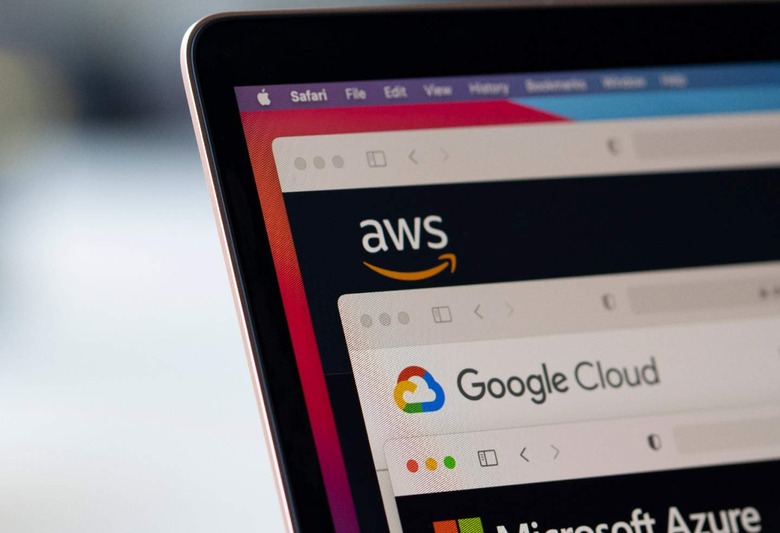Here's Why Amazon Outages Affect So Much Of The Internet
Amazon Web Services (AWS) has been in the news quite a bit in November and December 2021, and not for the reasons any company wants to be in the news. AWS experienced multiple outages across its cloud infrastructure services resulting in some of the biggest websites and services going down.
Major names like 1Password, Coinbase, RadioLab, Anchor, The Washington Post, DataCamp, Getaround, Glassdoor, Flickr, iRobot, Pocket, Roku, RSS Podcasting, Autodesk, and Vonage all experienced issues in November of 2021 (via The Verge). Services such as Snapchat, Zoom, Apex Legends, Crunchyroll, USPS, Ring, Starbucks, Intuit Quickbooks, Slack, Netflix, PlayStation Network, Clash Royale, Twitch, DoorDash, and EA games' EA services all experienced hours-long outages in December of 2021 (via Data Center Dynamics). At the time of the outage, DownDetector showed that McDonald's, Coinbase, and many other services were equally impacted.
In the wake of the outages, some experts are calling for more reliance on a multicloud future (via CNBC), but it's important to understand why an AWS outage impacted so much of the internet.
How And Why The AWS Outage Impacted So Many
AWS is currently the world's leading cloud infrastructure provider, with 32% market share. Microsoft Azure and Google Cloud come in at second and third place, with 21% and 8% of the market respectively (via Statista). As a result, these three companies control 61% of the total cloud market.
Companies big and small rely on cloud providers for their online infrastructure. For example, as an online service provider like Netflix, Flickr, or 1Password expands its footprint, it can either build out its own on-premise server farm or it can lease computing resources from a cloud provider.
Relying on a cloud provider is often much cheaper, and provides companies the ability to react to changes in the market almost instantaneously. As a company grows or adds additional services, it simply orders more resources from its cloud provider, instead of purchasing, installing, setting up, and integrating hardware on its own.
Unfortunately, this reliance on cloud providers also means there are concentrated fail points. With AWS controlling 32% of the market, a massive AWS outage could theoretically impact 32% of online sites and services.
That realization, along with recent evidence of AWS' fallibility, is prompting companies to look at multicloud solutions. In other words, rather than relying on a single cloud vendor, companies are looking to distribute their workloads across two or more vendors, providing added redundancy if something goes wrong with any one of them.

